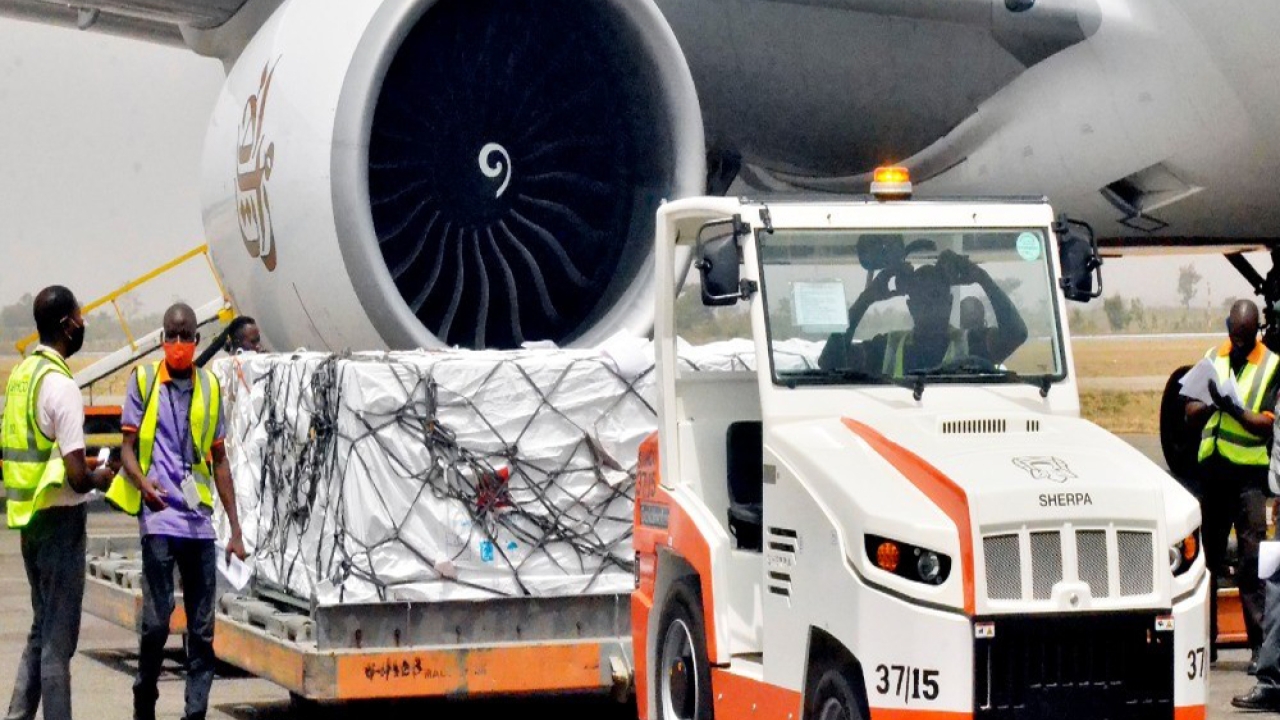Why Nigeria has loads of potential...
Nigeria has all it takes to lead the whole of Africa in air cargo export volume, but remains far from the leadership position.

FAAN club: Nigeria's airports cargo imports were much higher than exports and stakeholders believe this massive gap between imports and export should be bridged. PICTURE: SAHCO Cargo
According to Ikechi Uko, coordinator of the Federal Airports Authority of Nigeria (FAAN) AviaCargo road map committee, set up in 2022 by FAAN, Nigeria loses $1 billion annually to non-certification of agricultural produce for export, despite being one of the largest producers of agricultural products.
One of the challenges is that not much attention had been given to the flow of air cargo, and deliberate attention had been given to the analysis of the flow of passenger, aircraft movement, and flight operations, emphasising safety and security, as well as policy issues.
Other challenges include the cost of aircraft and maintenance, high cost of freight, poor incentives and government’s quality of regulations, deficiency of cargo security, technology, harassment and extortion by law enforcement agencies, climate change and multiple taxation. Uko called for enhanced certification of farms and operators in the value chain.
However, most airlines in Nigeria rely on cargo business for revenue generation even though they are not dedicated cargo airlines. There are indications that Nigeria’s domestic cargo business is worth more than N40 billion (about $US32 million as at February 2024), which the airlines and government can make a lot of money from.
Former chief executive of FAAN, Hamisu Yadudu said Nigeria has the capacity to triple its existing volume of cargo traffic if it gets priorities right, having surpassed Africa’s growth of 11.6 per cent in 2021, recording an increase of 52 per cent within 2021 over 2020. Nigeria has a population of more than 200 million and is the largest market in Africa with a higher air cargo import than export.
According to FAAN’s data, almost 871 million kilos of cargo passed through Nigeria’s airports, between 2017 and 2021, but import was much higher than cargo exported and stakeholders believe this massive gap between imports and export should be bridged.
The importance of freight to Nigeria’s gross domestic product (GDP) has inspired governments at all levels to take steps to boost the sector’s growth by seeking to close the gap between import and export volumes. This is evident in the increasing number of airports established by state governments, most of which were designated as cargo airports. Some of the airports established in recent years by state governments in Nigeria were licensed as cargo airports – 15 of 32 Nigerian airports have been officially designated as such.
The increasing number of cargo airlines equally poses a prospect for freight business growth. ValueJet airlines recently ordered a CRJ freighter for a dedicated cargo service thereby joining Allied Air, which over the years has operated as a dedicated cargo airline in Nigeria.
Patronage of freight business in recent years has also been boosted by high level of insecurity in the country, which makes the road and air transportation compete on freight delivery.
Segun Musa, former president, National Association of Approved Government Freight Forwarders (NAGAFF) said: “There is a need to look at constraints to getting more cargo airlines into Nigeria and the passenger airlines need to maximise cargo opportunity.
“Once airlines fly empty and yet, pay so many charges at airports, the freight cost will go up.” He said automation of systems and processes would reduce corruption at cargo sheds by 85 per cent.
To enable Nigeria to realise its full potential in the air cargo sub sector, stakeholders in a communique issued after the Aviation Safety Round Table Initiative (ASRTI) Quarter 3 business breakfast meeting held in Lagos on December 7, 2023 said: “There is need for an executive order to put a stop to all forms of charges that dissuade cargo export investments and hinder the country from attaining its full potentials in the air cargo sector” and that “the high landing and parking fees for cargo aircraft in Nigeria should be reviewed so that interested investors will not keep preferring neigbouring countries like Ghana and Togo for their cargo operations.”
Stay up to date
Subscribe to the free Times Aerospace newsletter and receive the latest content every week. We'll never share your email address.


